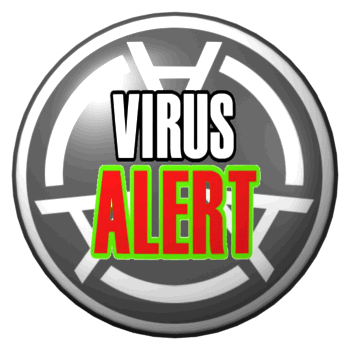Recently, all the websites that I manage were a target of a virus attack. I first found out about it through an email from a friend who tried to reach my main blog yogawithsubhash.com and got a virus warning. I then decided to check all my websites and found that four out of the eight websites that I maintain were infected. Since I transfer files back and forth between my PC and the web server, I subsequently found that my own PC was also infected.
Based on the error message that I was getting, I did some web search and found that the most common cause of the virus was the injection of a javascript code at the end of some of the files. The most common files like index.html, index.php, contact.php and some of the script files were the victims of this attack. With some effort, and risking infection of my own PC, I was able to download and clean most of these files. After uploading them again to the server I was able to get three of the sites working again. However, the very next day the virus got back into all the sites again.
Fortunately, my son, who is much more knowledgeable about PCs and viruses, was visiting me at that time. He had to spend a large amount of time finding and fixing all the problems. The first thing he did was to upgrade my PC from Windows XP to Win 7. Then we installed a different anti-virus program – AVG, which is available for free download and is highly recommended. With the help of this program we were able to clean all the files on the PC. Then we used an external hard drive to download all the websites onto the PC, ran the anti-virus on them and deleted or quarantined the files that were infected. We uploaded the cleaned up websites again on the host server. The websites seemed to be working fine at that point.But lo and behold, two days later the virus reared its ugly head again and this time all the eight websites were infected.
In the meantime, my son had gone back to NYC. Despite several calls to the help desk at the hosting company (justhost.com), I was not able to resolve the virus problem. All they kept telling me was that I need to download all the files to my PC, clean them up and re-upload them to the server. Since I had already done it twice without any improvement in the situation, I decided to switch to a new web host at this point. After doing some web search and comparative study of various hosting companies, I decided to sign up with bluehost.com. I once again went through the same exercise of cleaning up all the files and re-uploading them to the new host server. It has been a real challenge to make sure that all the files that are linked from the html/php files like the media files (audio, video, pictures etc.) and all the word and pdf files etc were uploaded to the appropriate directories on the server. The biggest effort was in reinstalling the wordpress platform for all my blogs, reconfiguring the themes and reinstalling all the plugins and configuring them. There are still a few ‘bells and whistles’ that I need to work on. Since many of the infected files were deleted or quarantined, there is a possibility of finding a few broken links. I would truly appreciate it if you can bring any such broken links to my attention.
Currently, all the sites are fully functional and free from virus. I am keeping my fingers crossed and hope that they will stay that way.
Here are some lessons that I have learned from this viral episode:
- On your PC, install a good anti-virus program and keep it constantly updated to the latest release. I currently have AVG on my PC. This is a free program and is highly recommended.
- Keep the anti-virus program active all the time. Even though it seems to take a little extra time due to virus checking while some of the files load, I think it is worth the wait.
- If you have a router for the home network, you must protect it with a password.
- If you own a website, try to use a ‘strong’ password for accessing the admin panel. I suggest using a combination of capital letter, a number and at least one special character in the password. Also, if possible, change the password every few months. I am planning to change my passwords every three to four months.
I am sure some of you are much more knowledgeable about this field of PC/network security. I would truly appreciate receiving any suggestions that you might have in maintaining high security both for the PC and websites. Please provide your valuable suggestions via the comments to this post.

Recent Comments